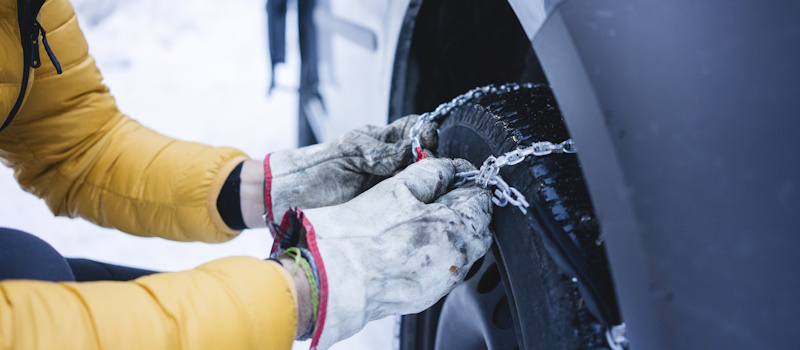Winter Preparation for Your Car
Winter Preparation for Your Car

Winter Preparation for Your Car
Each year, there are hundreds of fatalities and tens of thousands of injuries that result from vehicle accidents in snow, sleet, ice, or other winter weather conditions. And while not all vehicle crashes can be prevented, taking the steps to prep your car can keep you safer on the road this season. Here's a look at some tips for prepping your vehicle so it runs well and operates safely on the roads this winter:
Check Your Battery
Battery power drops as the temperature drops - and you don't want a dead battery this winter. Batteries can be depleted in as little as three years. If your car battery is getting up there in age, have it checked to see if it's still holding an adequate charge or if it needs to be replaced.
Check Your Tire Tread
If your tires don't have adequate tire tread, it's going to impact how well your vehicle stops in winter conditions. The tire tread should be at least 2/32 of an inch on all four tires. If you live in an area where winter weather is particularly hazardous, consider purchasing snow tires for the season. Snow tires have deeper tread and other features that offer more traction for winter weather driving.
Consider Buying a Tire Pressure Monitor (and Air Compressor)
Tire pressure drops about 1 pound per square inch (PSI) for every 10-degree Fahrenheit drop in air temperature. And being that driving on under-inflated tires is dangerous, it's imperative to ensure your tires are inflated properly. Consider purchasing a tire pressure monitor (and even a small air compressor) and checking your tires every few weeks during the winter. Inflate accordingly as necessary.
Other Considerations
Some other considerations for prepping your vehicle this winter include:
- Have a mechanic inspect your vehicle's cooling system. Have the coolant flushed and replaced if necessary. Also, ensure there are no leaks in the system.
- Inspect your windshield wipers and replace them if necessary. Depending on the amount of wear and tear, some windshield wipers may need to be replaced as often as once every six months.
- Make sure your headlights, turn signals, and emergency lights are all working properly. Replace bulbs if necessary.
- Ensure your vehicle has a good scraper on board to remove snow and ice from the windows of your vehicle.
- Check your auto insurance plan to see if you have roadside assistance. This can come in handy in the event of an emergency.
Pack an Emergency Kit
Even properly prepping your vehicle may not be enough to combat Mother Nature during the winter months. That's why it's important to pack an emergency kit for your vehicle in the event you become stranded for a period of time. Some items you'll want to include in any vehicle emergency kit include a blanket, a set of warm clothes, a flashlight, non-perishable food, water, hand and foot warmers, road flares, an extra cell phone charger, a first aid kit, and a snow shovel.
